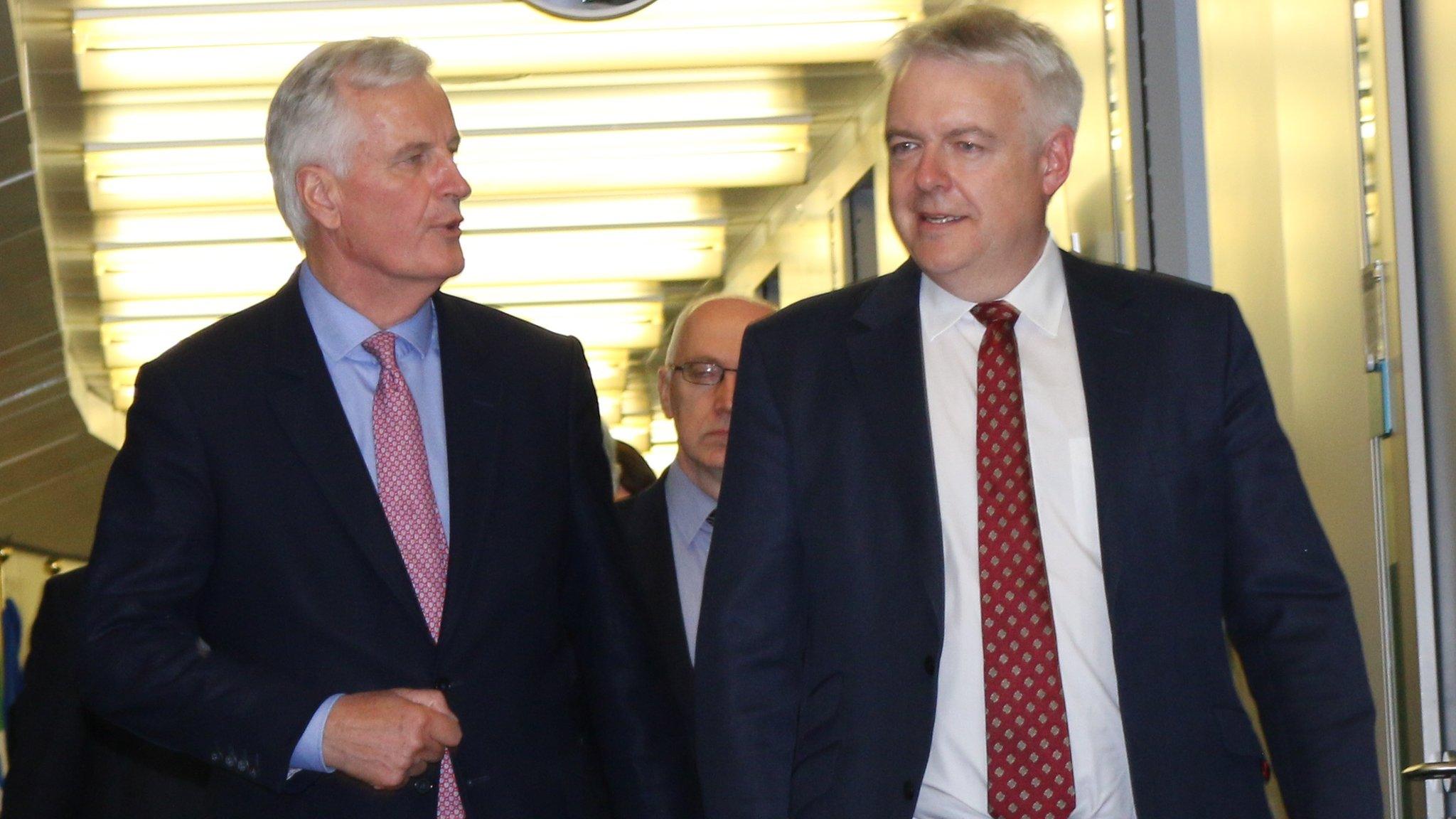Brexit: Welsh and Scottish governments propose bill changes
- Published
- comments
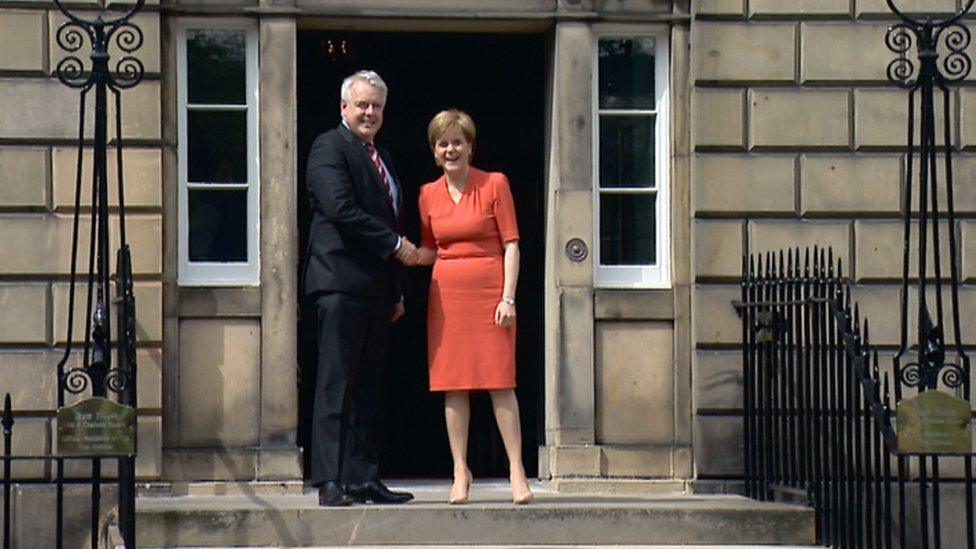
Carwyn Jones and Nicola Sturgeon want to prevent any loss of power devolved to Wales and Scotland
The Welsh and Scottish governments have urged Theresa May to work with them to prepare the UK for Brexit.
The call came as first ministers Carwyn Jones and Nicola Sturgeon published a series of proposed amendments to the UK government's EU Withdrawal Bill, to prevent any loss of devolved power.
Mr Jones said: "One government cannot simply hijack powers from the other two."
The UK government said Brexit would result in more power being devolved.
The UK government has said the bill is needed to guarantee future trading arrangements immediately after Brexit.
But the Welsh and Scottish governments have objected to the idea that EU responsibilities in devolved policy areas such as agriculture should first be held at Westminster pending longer-term decisions.
They have published 38 proposed amendments, external to the bill to protect the interests of the devolved administrations to:
Ensure devolved policy areas come back to the Welsh Assembly and Scottish Parliament after Brexit
Prevent UK ministers unilaterally changing the Government of Wales Act and Scotland Act
Require the agreement of the Welsh Government on necessary changes to current EU law in devolved areas after Brexit.
Ensure additional restrictions are not placed on devolved ministers compared with UK government ministers.
"The governments of these islands have a lot of work to do to ensure that the UK leaves the EU with as little disruption as possible," Mr Jones said on Tuesday.
"This will only be achieved by working together.
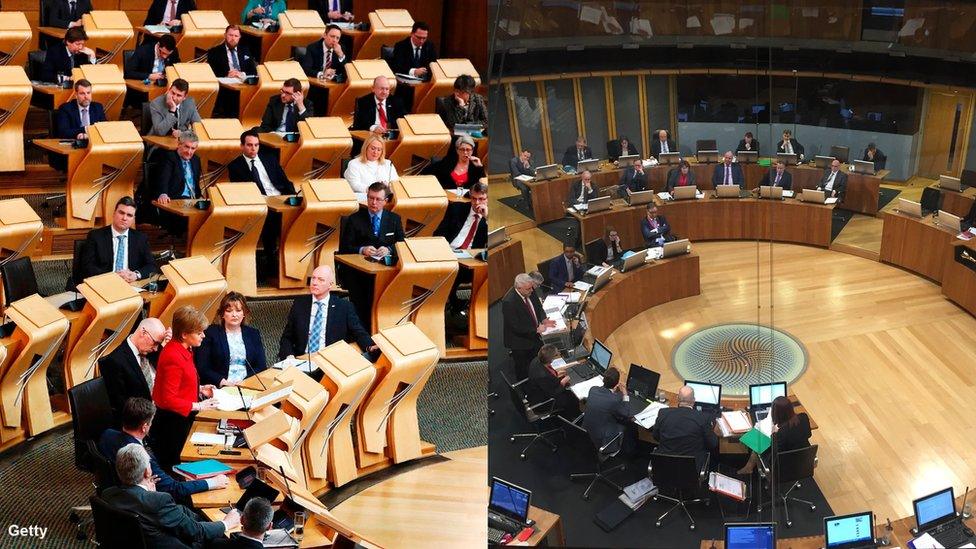
Both the Scottish Parliament (left) and Welsh Assembly (right) will get to vote on the Brexit bill
"Theresa May, Nicola Sturgeon and I all have very different political positions, but an issue as important as Brexit requires us to put our political differences aside and work together to provide stability for the sake of our economy, jobs and public services.
"One government cannot simply hijack powers from the other two."
Mr Jones said the proposed amendments to the bill "would enable progress to be made among the governments in a way which respects the hard-won devolution settlements".
He restated the Welsh Government's threat to formally object to the withdrawal bill by asking the assembly to withhold its consent, on the grounds that the bill will affect the assembly's competence, external.
"We want a bill that works with, not against, devolution," Mr Jones said.
"Until that point is reached, we cannot give it our consent."
He said the amendments were "not about stopping Brexit, they are about protecting the interests of the people of Wales and Scotland".
Although the Welsh and Scottish governments have no powers to amend laws at Westminster, the move is part of an attempt to force Mrs May to change course.
Labour and SNP MPs could also table the proposed amendments in Parliament.
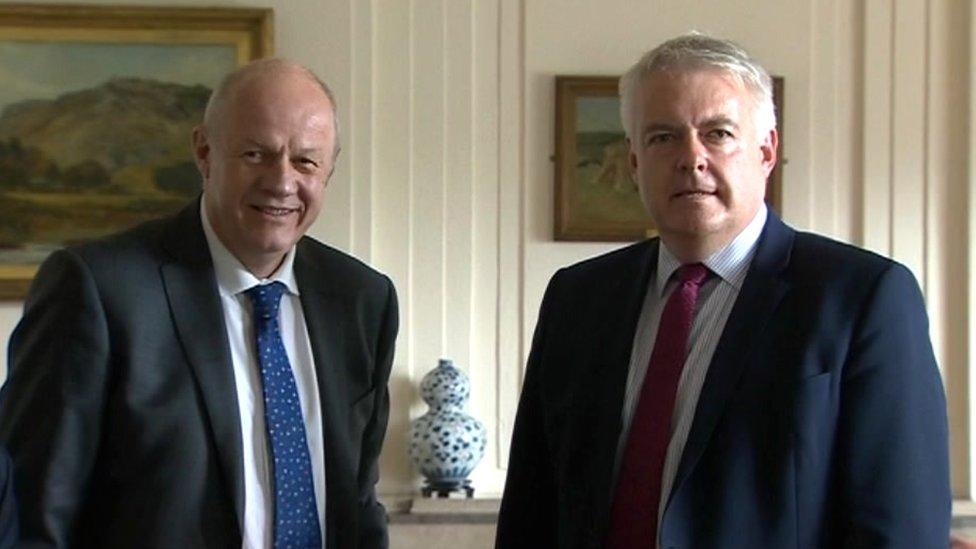
Damian Green met Carwyn Jones in Cardiff earlier in September
Damian Green, Theresa May's deputy as first secretary of the UK government, said the repeal bill aimed to "maximise certainty for individuals and businesses as we leave the EU".
He noted this would involve 111 policy areas in Scotland and 64 in Wales currently controlled from Brussels.
"'We want to continue to work with the Scottish and Welsh governments to make sure we are all ready to take on these new responsibilities when we leave the EU," he said.
'Cardiff, Edinburgh and Belfast will receive more decision-making powers as a result of this process.
"But the UK Government will not risk our internal UK market, or make life more difficult or more expensive for UK companies, workers or consumers.
"We all observe the same broad EU rules now," he added.
"Doing things four different ways - in England, Scotland, Wales and Northern Ireland - will not be the best way if it adds costs to companies and customers across the UK.
"I hope and expect that we can make progress in the talks that are planned for the coming week."

Analysis by BBC Wales political editor Nick Servini
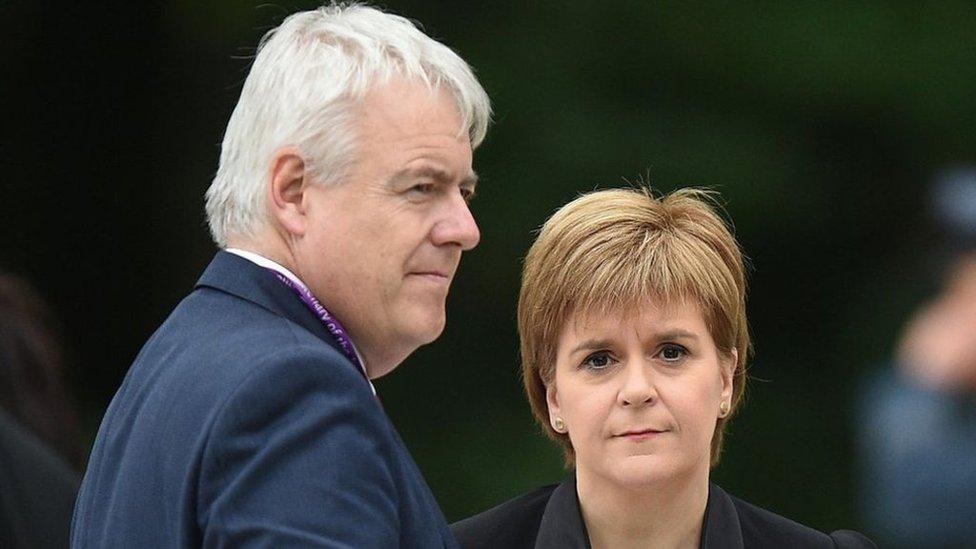
Carwyn Jones said was committed to a partnership with the Scottish Government over Brexit
This is a case of ministers in Cardiff and Edinburgh ramping up the pressure on the UK government in a very public way.
There have been discussions but the positions of the UK government and the devolved administrations are entrenched and at this stage it is difficult to see how the deadlock can be broken.
For the first ministers in Cardiff and Edinburgh, it is a case of safety in numbers.
Carwyn Jones and Nicola Sturgeon were on the opposing sides of the Scottish independence debate but when it comes to Brexit they have been speaking as one.
The big difference though is that Nicola Sturgeon is acting off the back of a convincing Remain vote in Scotland, whereas Carwyn Jones has to reconcile his opposition to the Brexit bill with the Leave vote in Wales.
- Published12 September 2017
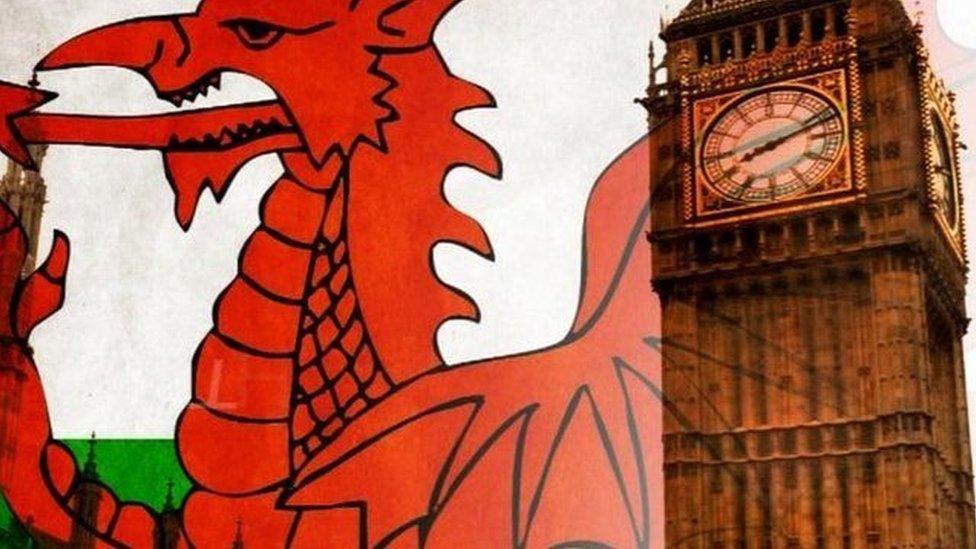
- Published4 September 2017

- Published14 July 2017
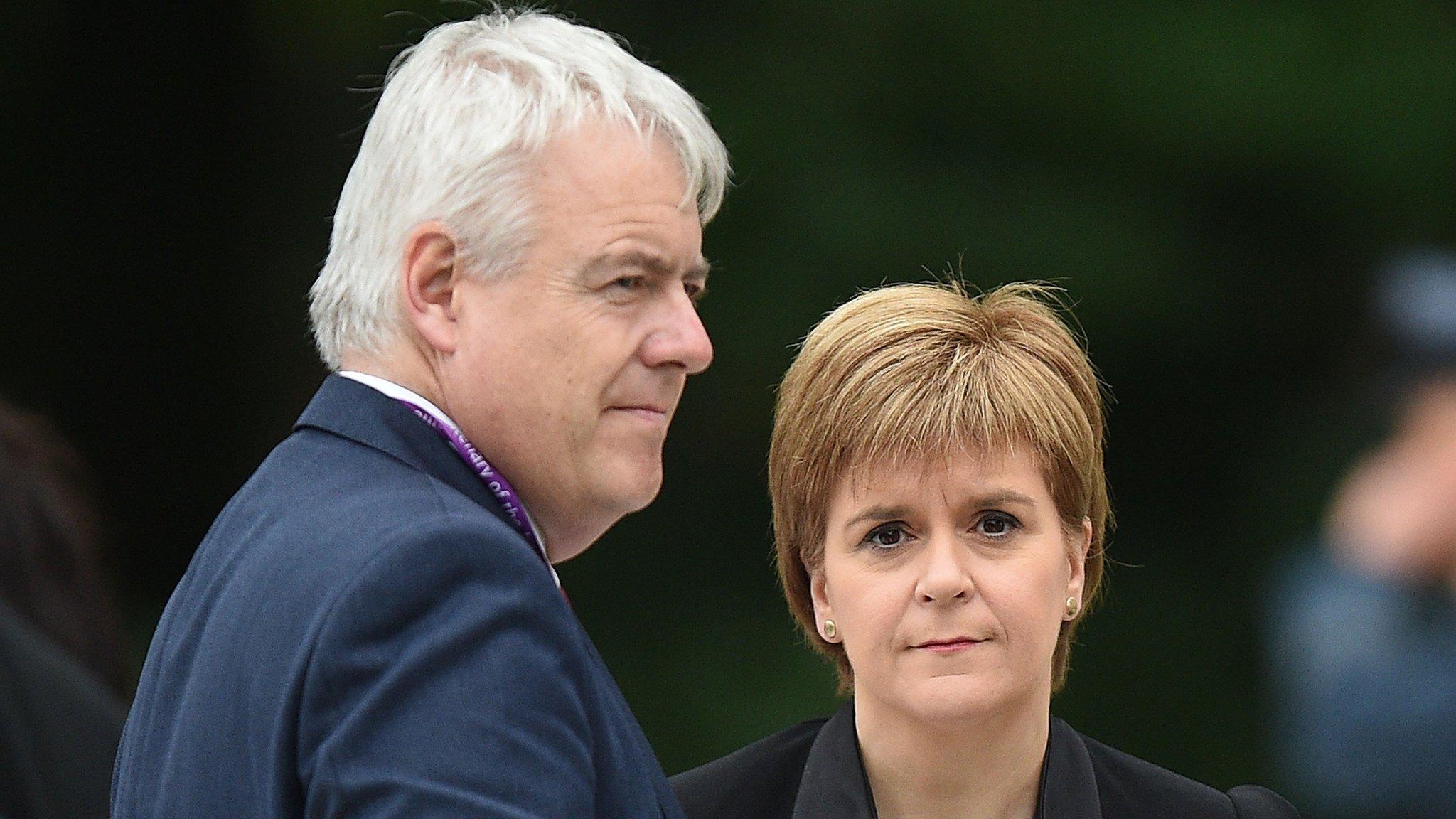
- Published12 September 2017
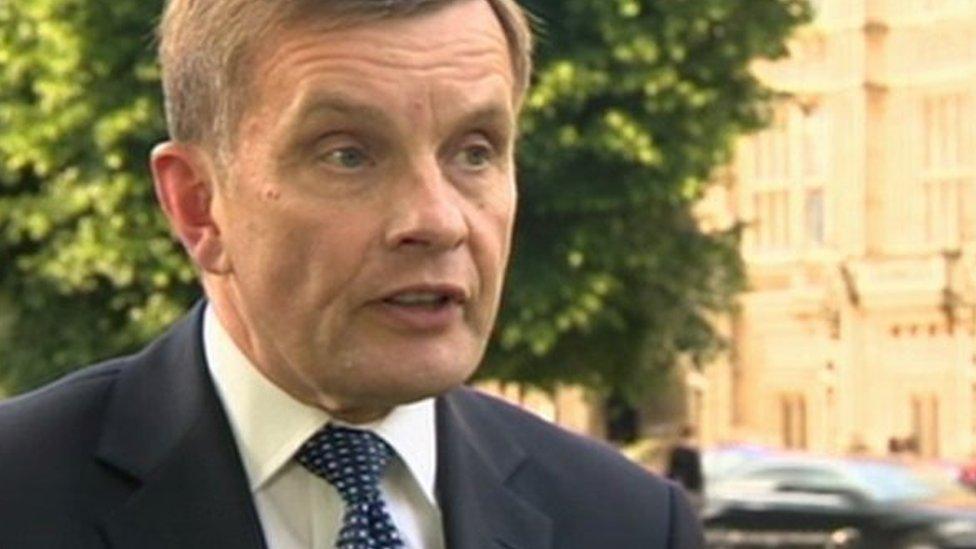
- Published11 September 2017
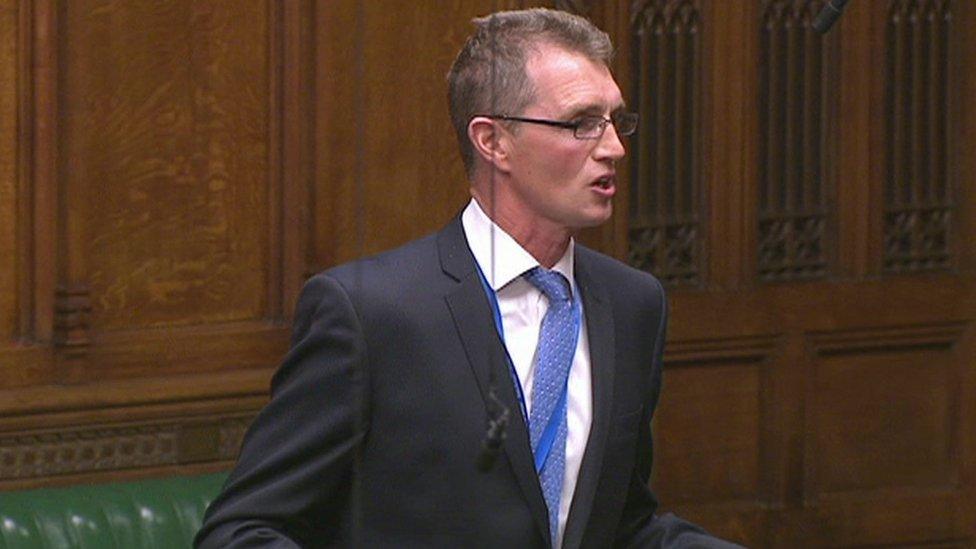
- Published13 July 2017
